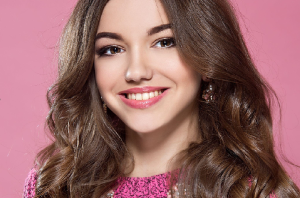Everything you need to know about retinoids

Retinoids are natural or synthetic compounds that have the same biological activity as vitamin A, and are used to treat skin pathologies. There are retinoids for medical and cosmetic use.
Doctors can be 20 times more powerful than natural ones. Among the prescription drugs, retinoic acid, tretinoin, and isotretinoin are common. Regarding cosmetic use, only retinol is registered as such.
How do they work?
Table of Contents
Retinoids are capable of increasing epidermal thickness and reducing fat production, so the benefits are similar to those of hydroxy acids. Concentration is important when using cosmetic retinoids, since the efficacy and adverse effects depend on it.
In addition, hydroxy acids and retinoids are acidic and active with exfoliating action , so it is normal to notice an itchy sensation on the skin during application. In fact, the main difference between itching from the exfoliating action and an adverse reaction to the product is that the former disappears after several minutes and the latter remains.
Prescription retinoids
When you are taking retinoids by mouth, be sure to use birth control . Oral retinoids such as acitretin, alitretinoin, bexarotene, isotretinoin, and tretinoin are highly teratogenic – they affect fetal formation. For this reason, in the case of women with pregnancy capacity, both from the start of treatment and throughout it, and for a period after its completion, the absence of pregnancy should be verified.
Depending on the retinoid you have taken, the control of non- pregnancy is up to one month later for alitretinoin and isotretinoin, and three years for acitretin. The ideal is to do it monthly during the treatment and a month after finishing it.
In the case of topical retinoids, it is recommended not to use them during pregnancy , or in women planning a pregnancy. You should also be alert to the appearance of symptoms such as mood or behavior changes, especially if there is a history of depression.

Cosmetic retinoids
Retinol is a derivative of vitamin A, commonly used as an anti-aging ingredient . It is one of the most effective against expression lines, pigmentation and wrinkles.
This is because retinol increases collagen production and improves cell turnover. Retinoids potentiate many cellular functions that tend to slow down after the age of 30. They also help remove dead skin cells , oil and dirt from the pores.
How to use cosmetic retinoids
Most people who start using retinoids for the first time experience some irritation, redness, and peeling in the initial weeks of use, as the skin gets used to the ingredient and builds tolerance. At first, its application should be gradual and progressive so that the skin gets used to it.
You can apply it daily, in low doses, or make sporadic use, as a shock treatment. If you have sensitive skin, you should be especially careful when choosing products with retinol.
What are retinoids used for?
There are endless indications for the use of retinoids. Some of them are acne, clogged pores, rejuvenation, stimulation of collagen production, decreased expression lines, hyperpigmentation, melasma, keratoysis or photo-aging.
It can treat any part of our body, including the mucosa . In fact, there are retinol-based peels that are applied, by properly trained professionals, to the lips and genital area.

When is the best time to use them?
Its use in summer and on sunny days has always been discouraged . However, there are currently formulas in which molecules are liposome using nanotechnology. This makes it possible to use cosmetic products with retinoids in the summer. However, it is very important not to forget to always apply a good sunscreen afterwards.
Using retinoids?
The use of oral retinoid treatments is recommended only if it is considered absolutely necessary . It is an obligation to inform women with pregnancy capacity about the risk of congenital malformations and miscarriage associated with the use of these drugs.








